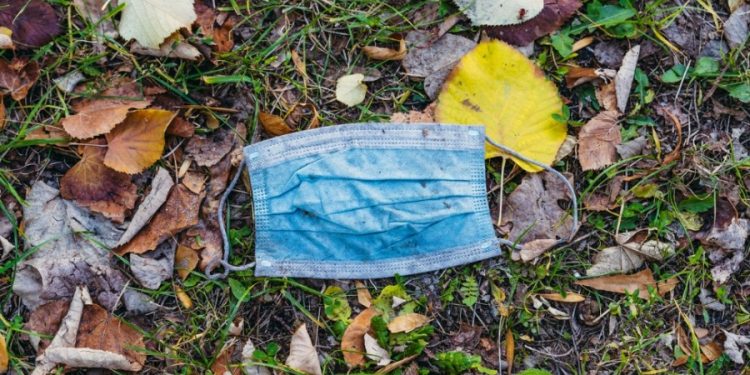Believe it: Merriam-Webster’s 2022 word of the year is “Gaslighting.”
Today in health, we look as the White House’s booster push falls flat against widespread pandemic fatigue even as another coronavirus surge looms.
Welcome to Overnight Health Care, where we’re following the latest moves on policy and news affecting your health. For The Hill, we’re Nathaniel Weixel and Joseph Choi. Someone forward you this newsletter?
White House battles pandemic fatigue in vax push
Public health officials have repeatedly warned that the U.S. will likely face another wave of COVID-19 infections as the weather gets colder and people travel and gather for the holidays.
But it doesn’t seem to be convincing a checked-out public to get vaccinated.
New COVID-19 booster shot uptake remained low heading into the Thanksgiving holiday, frustrating Biden administration officials who previously called for the public to get booster shots in time for Halloween.
The government has purchased 171 million doses of the updated vaccine. But federal data shows that just 11 percent of the population older than age 5 has received a dose, including just under 30 percent of people 65 and older.
Anthony Fauci, in likely his final White House briefing before he leaves government, implored people to get vaccinated and not get complacent about COVID-19.
“My message, and maybe the final message I give you, please, for your own safety, for that of your family, get your updated COVID-19 shot as soon as you’re eligible to protect yourself, your family and your community,” Fauci said.
New COVID-19 cases and hospitalizations are down from the most recent summer surge, even as the virus continues to circulate and deaths have plateaued at about 2,200 people every week.
Updated data show the greatest danger is still to people who are not vaccinated. But there is also a significant concern for vulnerable people who are not up to date with their vaccines. Even though they may have received the original vaccine, they need an updated shot to be protected from severe disease and possible death from newer variants.
“Here’s what we know: If folks get their updated vaccines, and they get treated, if they have a breakthrough infection, we can prevent essentially every COVID death in America,” White House COVID-19 response coordinator Ashish Jha said.
Read more here.
WHO to phase out ‘monkeypox,’ rename it ‘mpox’
The World Health Organization (WHO) on Monday said it is renaming “monkeypox” as “mpox” amid concerns that the name may be considered racist and might not accurately describe the origin of the virus.
The two terms will be used simultaneously for one year while “monkeypox” is phased out, WHO said in a statement. The agency over the summer said it would consider suggestions for a name change.
“When the outbreak of monkeypox expanded earlier this year, racist and stigmatizing language online, in other settings and in some communities was observed and reported to WHO,” the agency said.
“In several meetings, public and private, a number of individuals and countries raised concerns and asked WHO to propose a way forward to change the name,” WHO said.
An uncommon move: Assigning names to existing diseases is rare, but it is the responsibility of WHO under the International Classification of Diseases (ICD). Usually, the ICD updating process takes up to several years, but the WHO said the process was accelerated in this case.
LGBTQ activists, scientists and public health experts have been calling for the name change since the U.S. outbreak began earlier this year. They argue the name plays into racist stereotypes about Africa and hampers the global response.
Read more here.
FAUCI: ‘KEEP THE POLITICS OUT OF’ INVESTIGATING COVID ORIGINS
Anthony Fauci, the chief medical adviser to President Biden, said on Sunday that the U.S. is in a “much better” place in the pandemic compared to a year ago but stressed it is not completely over.
“I don’t like reading in the newspapers or getting my report from the COVID team: today we lost 400 people, today we lost 350 people,” Fauci said during an appearance on CBS’s “Face the Nation.” “So it’s much, much better than it was, but it is not at a level low enough where we should feel we’re done with it completely, because we’re not.”
On Sunday, moderator Margaret Brennan noted that Fauci a year ago indicated on the show that he would feel comfortable retiring once COVID-19 is in the rearview mirror and doesn’t dominate the mental framework of society.
Fauci plans to step down from his government roles next month, including his post at the National Institute of Allergy and Infectious Diseases, which Fauci has led for
38 years.
Fauci responded by noting that the current case and death rates are dramatically lower than one year ago, when the omicron variant began to surge.
“That is much, much better than we were a year ago,” Fauci said on CBS. “But if you look at it in a vacuum, it’s still not a great place to be.”
Read more here.
LIFE INSURERS PAY RECORD DEATH BENEFITS IN 2021
New data released by the American Council of Life Insurers (ACLI) shows companies paid $100 billion to the beneficiaries of policyholders who died last year.
That number is the highest amount life insurance companies have paid out to policyholder beneficiaries in a single year, according to a release from the ACLI.
While the ACLI data does not show policyholder cause of death, Vice President and Chief Economist at ACLI Andrew Melnyk said COVID-19 is most likely a driving force behind the spike in payouts for the second year in a row.
And that spike is driven by two reasons: the disease’s presence resulting in more Americans purchasing life insurance and the sheer number of people who have died as a result of being infected with the virus.
Preexisting trend: Life insurance payments have gone up since 2019, according to ACLI data. The number of life insurance policies bought last year was about
6 percent higher than in 2020 with about 46 million policies purchased in 2021.
Read more here.
Battle against RSV in schools recalls COVID-19 fight
Schools are preparing for another winter marked by mass sickness, as the respiratory syncytial virus (RSV) continues to spike among children, prompting precautions that mirror those seen during COVID-19.
Facilities with younger children such as day cares and pre-K programs face a potential “tripledemic” of RSV, COVID-19 and the flu this season. Day cares and classrooms are known to be vectors of transmission for pathogens like RSV, a virus for which there is currently no vaccine.
A big part of keeping children safe is clear communication between the educators and parents, said Shannon Robinson, health and nutrition manager at the childcare nonprofit Bright Beginnings in Washington, D.C.
“It’s just a matter of continuing to educate our parents and allow them to ask questions that they may have, because a lot of the information is new to parents where they don’t quite understand what exactly is happening,” Robinson said.
Enforcing boundaries: “I do know that most childcare providers are really reinforcing to the parents that they are not going to accept a child that has any symptoms into their program, which is hard to do. Parents need to go to work, but that’s the number one line of defense,” Cindy Lehnhoff, director of the National Child Care Association, told The Hill.
Major U.S. school districts told The Hill that while they are not mandating mitigation methods, they are encouraging parents, teachers and students to return to the practices that became commonplace during the worst parts of the COVID-19 pandemic.
Hand washing, sanitizing toys, keeping children home when they are sick — and clear communication between parents and educators — are all seen as crucial to keep children safe this winter.
Read more here.
WHAT WE’RE READING
Experimental flu shot aims to target 20 influenza viruses in a single vaccine (USA Today)
WHO’s departing chief scientist regrets errors in debate over whether SARS-CoV-2 spreads through air (Science)
Covid deaths skew older, reviving questions about ‘acceptable loss’ (Washington Post)
STATE BY STATE
Oklahoma voters could decide on abortion access under proposed ballot initiative (KOSU)
Los Angeles County health officials issue cold weather alert (Los Angeles Times)
New program addresses shortage of rural Tennessee doctors (The Tennessean)
THE HILL OP-ED
Stop hospital consolidations to lower health care prices for all Americans
That’s it for today, thanks for reading. Check out The Hill’s Health Care page for the latest news and coverage. See you tomorrow.















